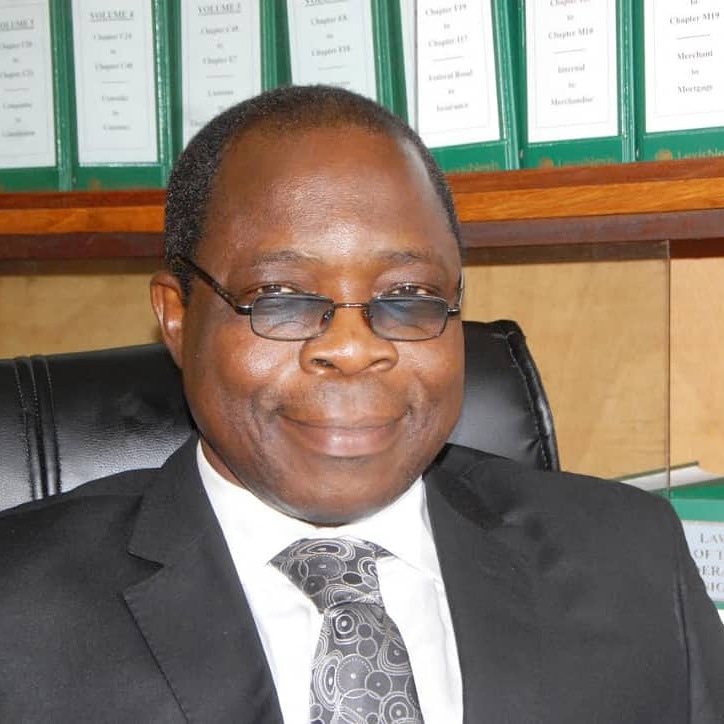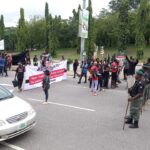By Mack Ogbamosa
The agitations are rising. More than ever before, many Nigerians are debating the necessity or otherwise of rotating the position of president from one part of the country to the other. These agitations have created a division between our Northern governors and their Southern counterparts . Whereas Southern Governors are insisting that the next president in 2023 must come from the South in the interest of justice, fairness and equity, their Northern colleagues are kicking against it, saying that such a call is not only unconstitutional but undemocratic.
While this writer agrees that there are some genuine reasons for the agitations, he does not believe that mere rotation of the Presidency can guarantee good governance in the country.
REASONS BEHIND THE AGITATIONS FOR ROTATIONAL PRESIDENCY
Concentration of powers at the presidency
Without doubt, one of the major reasons for the calls for rotational Presidency is the concentration of powers in the hands of the President. . The President is like an emperor or monarch , who is in control of virtually everything. He is in charge of allocation of resources. He does not only have a hand in the appointment of those in executive positions but also the heads of the judiciary. He even influences the election of heads of the legislature.
The nepotic nature of our leaders
It is the belief of many agitators that the President in the exercise of these powers practises nepotism. He appoints people to “principal, sensitive or juicy” offices without obeying the principle of Federal character as enshrined in Chapter II of the 1999 Constitution under: Fundamental Objectives and Directive Principles of State Policy. Section 14(3) of the of the directives says that” The composition of the government of the Federation or any of its agencies and the conduct of its affairs shall be carried out in such a manner as to reflect the Federal character of Nigeria and the need to promote national unity , and also to command national loyalty, thereby ensuring that there shall be no predominance of persons from a few states or from a few ethnic group or other sectional groups in that government or in any of its agencies “
Have our presidents been complying with this provision?
Unfortunately there is not much the citizens can do to make the President to do the right thing largely because the Constitution did not make it enforceable. Section 6(6c) of the same Constitution makes a provision to ensure that violation of this principle by the President cannot be questioned in Court.According to the Section, “The judicial powers vested in accordance with the foregoing provisions of this Section ” Shall not, except as otherwise provided by this Constitution, extend to any issue or question as to whether any act or omission by any authority or person or as to whether any law or any judicial decision is in conformity with the Fundamental Objectives and Directive Principles of State Policy set out in Chapter II of the Constitution.”
Poverty of the political class
Perhaps, the most important reason for the calls for Rotational Presidency is poverty of our political class.Most of our political leaders are generally selfish. They ignore the fact that the primary purpose of their being in government is to ensure the security and welfare of the people they govern as clearly stated in Chapter II, Section 14(2b) of the 1999 Constitution. They behave as if they are in politics not for the people but for themselves. This has resulted in a situation where those in power engage in privatisation of the state leading to primitive accumulation for themselves and their families while the rest of the people wallow in material poverty. It is the belief of some people that those who become presidents from certain regions will enrich their people by giving them opportunities for material acquisition. .
Partisan nature of location of projects in certain parts of the country
It is also the belief in some quarters that the president will locate projects in his own part of the country while ignoring other parts.
It is argued that most of our political leaders tend to favour their areas of origin in deciding where to locate major projects. In their attempts to satisfy their regional and ethnic divisiveness, they jettison economic considerations in determining the right place for project location
This has been evident in many cases.
Cries of marginalisation especially from the eastern part of the country
There are cries of marginalisation by people from some parts of the country whose indigenes have not been privileged to be at the helm of affairs under civil rule. This is coming particularly from those in the South East region of the country, who believe they are being “punished ” because of the Civil War fought between the region and the Federal Government between 1967 and 1970.
Can rotational presidency cure these ills and guarantee good governance
From the perspective of this writer, rotational presidency without considering the competency of the leaders cannot cure these ills and guarantee good governance.
Ethnic, sectional and religious sentiments
Rotational Presidency has the tendency to stir up ethnic, religious and regional sentiments, thus promoting disunity and regional or sectional loyalty.
Lack of patriotism
Rotational Presidency may not promote patriotism among citizens.
Empowers only the political class
It is very likely to empower only the political class while the larger population remain marginalised. This can be seen from the trend of leadership we have had since our political independence in 1960.
Despite the fact that the Northern region has produced most of the nation’s leaders since then, majority of its citizens are the poorest and most marginalised in the country. One of the outcomes of this state of affair is the high level of insecurity in this part of the country today.
Even though Chief Olusegun Obasanjo ruled the country for about 10 years (both as a military and civilian head of State), the South West region , where he hails from, did not enjoy any special benefits from his long stay in power. In fact, he fought against the then Lagos State governor, Bola Tinubu, from his region by stopping local government allocation from the Federation account to the state since, according to him, Tinubu violated the constitution by creating Local Council Development Areas (LCDAs) in the state.
Goodluck Jonathan ruled for about six years but did not develop his region of origin, the South South.
What should be done
This writer believes that what Nigerians deserve is good leadership. A leader who loves to work for the people. It does not matter where the leader comes from. For many members of our generation, the best national leader the nation ever had is the late General Murtala Muhammed, who ruled for only 200 days. We were all proud to be called Nigerians during the short period of his being in power. We did not want to know where he came from.
The challenges of governance in the country are mainly caused by the political elite.They are the ones that want to take advantage of the adoption of rotational Presidency for their selfish ends not for the interest of the generality of the people.
An average Nigerian does not think of who is President. What concerns him or her is how to get food, education, employment, housing and security of his or her life and property . These are spelt out as fundamental objectives and Directive Principles of State Polcy in Chapter II of our Constitution. They are socio- economic rights which in my opinion, are as important as the fundamental human rights in Chapter IV of the Constitution. Let’s amend the Constitution by making provision for their enforcement.
Rotational Presidency without consideration of competence and without enforcement of Chapter II cannot guarantee good governance in the country.
Ogbamosa, a legal Practitioner/ Communications Consultant, can be reached via:mack_ogbamosa@yahoo.com








Leave a comment